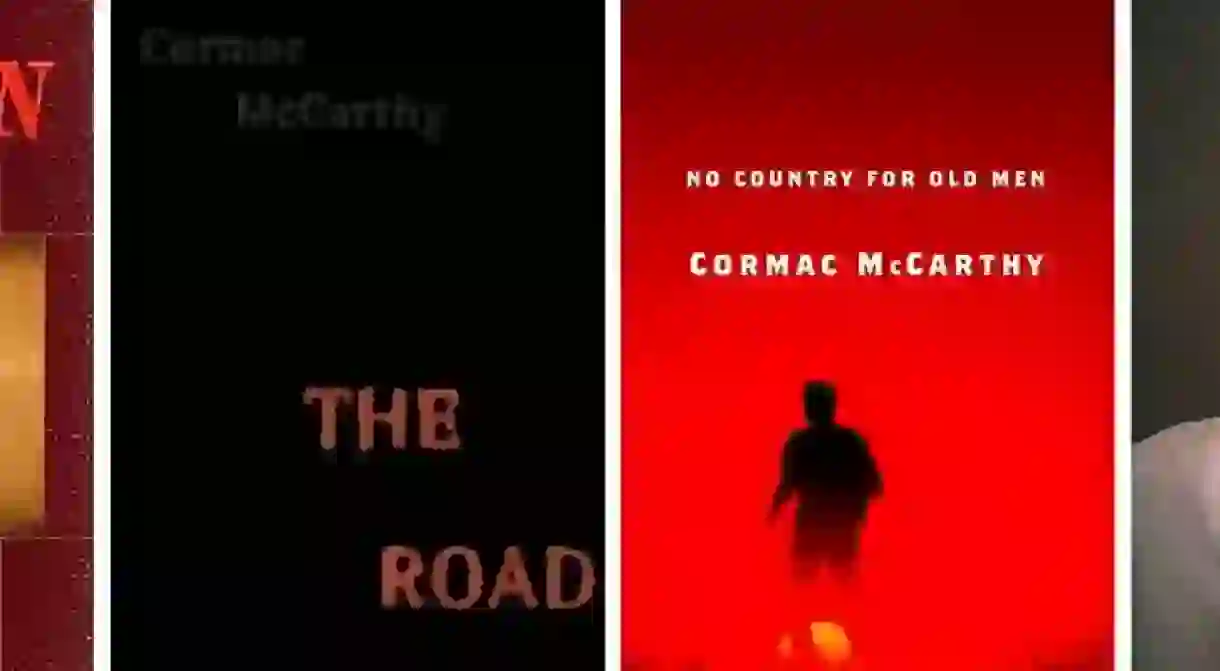Cormac McCarthy: Southern Literature's Adopted Son

Cormac McCarthy’s unsettling works have reinvigorated the Southern Gothic genre of literature by taking the archetypal Cowboy narratives of the Southern States and turning them into something uniquely bleak and apocalyptic. According to Lindsay Parnell, Cormac McCarthy is the literary godson of William Faulkner and has inherited his twisted take on Southern life.
Cormac McCarthy is a displaced Northerner, who has become an adopted and proud son of the South. McCarthy’s name is now synonymous with contemporary narratives of the Gothic South, the violent grotesque imagination of the West which still haunts the region today. McCarthy’s literary career spans over 50 years and various genres of fiction, screen and stage. His body of work solidifies his recognition as a unique writer of prose. Through his skilled use of motifs including the apocalyptic, the religious, the moral and immoral, McCarthy’s stories are American folklore infused masterpieces. His canon is marked by depictions of the isolated and violent gothic and grotesque, making him the undeniable leading voice of the contemporary literature of the American South.
Born in Providence, Rhode Island in 1933, Cormac McCarthy was just four years old when his family moved from their home to Knoxville, Tennessee, where McCarthy would spend his childhood and adolescence. This relocation proved to be a pivotal point for the budding writer and provided the landscape and culture that would come to define many of his novels. Published in 1973, McCarthy’s underrated debut Child of God, tells the story of the alleged deviant outcast Lester Ballard living in rural Tennessee. He is unlawfully arrested and labeled an infection of the supposedly righteous Christian community. But upon his release, Ballard begins a sadistic pursuit of revenge, wreaking havoc on the community and those who unjustly imprisoned him.
McCarthy’s greatest contribution to the contemporary American canon is largely regarded as 1985s Blood Meridian. McCarthy’s fifth text is an epic novel that seamlessly fuses together a traditional Western narrative with a philosophical interrogation of the apocalypse. Blood Meridian, based partly in Texas,is an accomplished retelling of classic cowboy folklore through the narrative of its protagonist. Known only as the Kid, this bloodthirsty teenager ravages the countryside in his band of horse-backed misfits on a journey from Tennessee to the great unknown of the vastly untouched American Midwest in the mid-1800s, pre-Civil War era. The novel is as lyrical as it is harsh, never drifting into sentimentality. A sense of obscurity lingers throughout the pages, its characters and its plot subverting conceptions of the heroic cowboy in the Western panorama and simultaneously questioning notions of modernity and justice.
No Country for Old Men, first published in 2005, is a lyrical narrative of a seedy drug deal gone wrong and the subsequent paths of three men in a bloody chase for the drugs, the money, and each other. The Road was released in the following year and marked a turn from McCarthy’s Western and Southern storytelling to a deviation of a post-apocalyptic tale. An unnamed father and son desperately struggle to survive at the end of days in The Road. Famished, unwashed and exhausted, the father and son embark on a bleak journey and are forced to examine their own limitations at the cost of their own survival in this Pulitzer Prize winning novel.
With a number of critical and commercial successes in the cinematic adaptations of his novels, McCarthy continues to be, above all else, a genuine storyteller. And he will undoubtedly be known for his meticulous control of his tightly wound and sinister plots. A master of craft, a sly puppeteer, he is the undeniable voice of contemporary Southern literature.
By Lindsay Parnell













